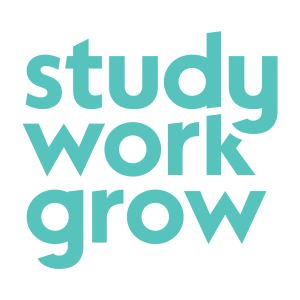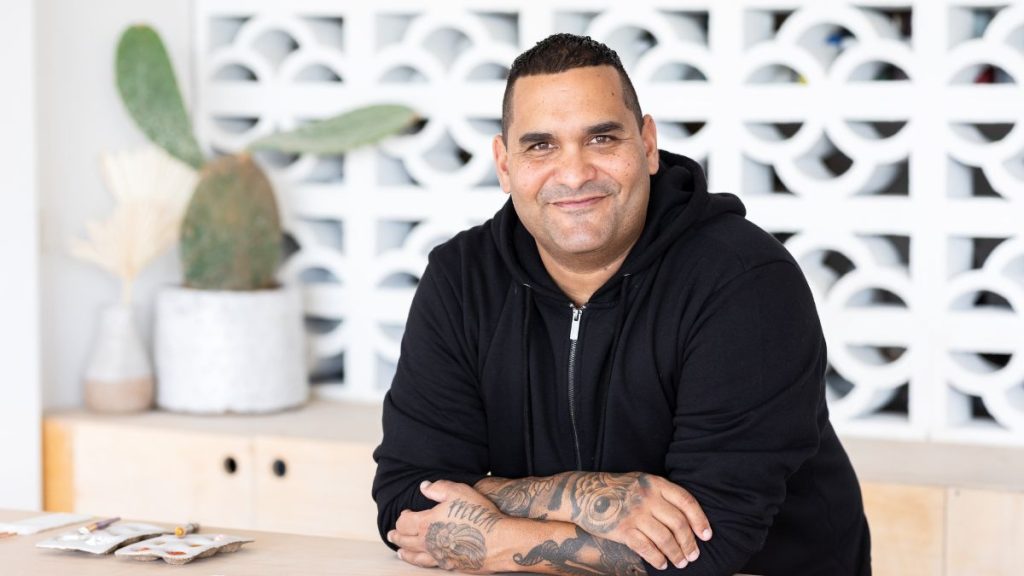If you’re an Indigenous student in Year 12 this year and planning to go to university, you could be feeling a little bit nervous about what’s in store for you. So we’ve put together some advice on starting university for Indigenous students to help you overcome your fears and embrace the excitement about starting a new chapter in life. There’s tips on utilising support services, finding financial support, and just being yourself – let’s take a look.
Get acquainted with O-Week
Orientation week, often shortened to “O-Week”, is your chance to get to know what university life is all about. You’ll find out about what to expect from your course, meet other new students, learn about support and wellbeing services, and so much more. The whole idea is to help ease the transition from high school to university and help you to build connections with other students and staff.
O-Week is definitely useful, but if you’re feeling the pressure already or just can’t make it due to other commitments, that’s totally OK. Universities offer support all year round, so don’t be afraid to contact them at any time.
“Don’t feel too pressured to participate. I missed my O-Week in my college and I’m fine. You’ll have plenty of opportunities throughout your university life to meet new people.”
Ethan Taylor, ABC Everyday
Access support services
Universities have all kinds of support services for students, from those tailored to Indigenous students to resources accessible to everyone. Here are some you might like to take a look at.
Indigenous Higher Education Units
Every university in Australia has an Indigenous Higher Education Unit (IHEU), designed to provide culturally-appropriate support and networks for Indigenous students. They can help you with course enrolment, tutoring, balancing your study and social life, and so much more.
“Even though the cultural connections have always run deep in my family, I found that building a support network with other Indigenous students really helped to strengthen my own sense of identity.”
Jessica Singh, Bond University
Student unions
Student unions are run by students for students. They serve as a collective voice and work to represent student interests and advocate for student rights, particularly for marginalised or under-represented student groups, including Indigenous students. They provide a wide range of services to support student wellbeing and success, as well as organise social and cultural events, clubs, and activities that foster a sense of community.
“Indigenous students weren’t as engaged as other students when it came to really getting our hands on our education. UATSIS lets Indigenous students tell the university what we want from these courses and what we want from the administration, things that can make our life that much easier.”
Ethan Taylor, ABC Everyday
General support services
You can also take advantage of other general academic support services such as tutoring, study groups, and writing workshops – they exist for a reason, and you don’t need to struggle alone. Whether you want to sharpen your language skills, learn how to reference, or just want some time to brainstorm and mingle with other students, there’s something for everyone.
“Those are the kind of things that set me up in my first year. They kind of demystified university for me and now I’m comfortable and that has allowed me to be successful.”
Tetei Bakic, Sydney Morning Herald
Focus on you
Heading off to university is a big change. You’re not just studying; you’re also growing as a person, discovering things about yourself, and trying to figure out what your future might involve. And this isn’t all going to happen overnight! So be kind to yourself and remember that you’re only human – there’s nothing wrong with making mistakes as long as you learn from them.
Sometimes you might find that you’ve changed your mind about your course down the track, and that’s totally OK. Your university can help you figure out your options and guide you through the process of changing courses.
“If you don’t enjoy it after six months, change. I wish I did that. I wish I had changed in my first year instead of my second year. It’s OK to change. You will go throughout life changing jobs multiple times, you never have just one job.”
Bromley See Kee, ABC Everyday
Embrace and celebrate your cultural identity
Moving away from home, culture, and community can be hard. It’s not always easy to make a new life in a new place, especially for Indigenous students who might struggle leaving a close bond to country. But remember, you’re never alone.
IHEU’s aren’t just places to find study help – they’re also a great place to meet other Indigenous students on campus, connect with local culture, and even just relax in a welcoming and comfortable space.
“At first it was an achievement adjusting to things like managing finances and big city living – back home everyone knows everyone! So the support from Moondani Balluk staff has been amazing. They’re there for anything from academic support to just having a yarn.”
Jaydah Turner, Koori Mail
Close connection to community and country might even be what drives you to study in the first place. Many Indigenous students want to study so they can give back to their communities, or because they’ve been inspired by someone else close to them.
“You realise how important culture is because you realise all of your hopes and dreams go back to that idea of community. I saw what was happening to my family, with the health impacts and I realised I can either give up now and not make a difference or I can continue and hopefully make a difference when I am a doctor.”
Shailyn Isaac, ABC Everyday
You can participate in cultural events, ceremonies, and gatherings (both on and off campus) to stay connected to your heritage and community.
Find financial support
Aside from study and cultural support, universities also offer tons of financial support options for Indigenous students too. Whether you need some money for textbooks and equipment, want help covering accommodation costs, or are looking for a way to reduce your course fees, there are scholarships out there for any situation.
“I was determined to do whatever I could to get to Bond but, financially, I knew we couldn’t afford it. The scholarship was my passport and I think it’s fantastic that Bond has all these partners who are giving Indigenous kids like me the opportunity to study at a prestige university.”
Jordan Kilcoyne, Bond University
There are lots of other organisations that offer financial support as well, such as government payments, community groups, and even local businesses.
Advice from Indigenous alumni
If you’re still not feeling quite sure, here are some words of wisdom from Indigenous people who have been in your shoes and have come out the other side.
“If you’re not sure about what you want to study and where you want to go in life, that’s okay, that’s normal. One thing you realise when you get here is that everybody is finding their way, finding their feet. The best thing you can do is keep putting one foot in front of the other and keep moving forward.”
Cameron Callope, Bachelor of Health Sciences at UQ – Koori News
“I dropped out of high school in Year 10. In all honesty, as a high school dropout, I didn’t think I was eligible to go to university. While I was curious about pursuing my education, I was also very hesitant.
“The ever-patient Aunties at the Office of Indigenous Student Support listened to me say for years that I wanted to come to university, and I’d guess that no one was more shocked than them when I finally decided to enrol.
“Studying at Charles Darwin University has taught me many things as both a student and a person.”
Mark, Bachelor of Laws at CDU – Charles Darwin University
“There are so many students who have been motivated to achieve amazing things by being surrounded by deadly students who understand you. So, to that school leaver, that lost kid; seek out the community that understands you; trust them.
“That’s where the magic is; proud blackfellas inspiring and pushing one another to succeed, all with the goal of using their knowledge to help the community that we all owe so much.”
Otis Carmichael, Bachelor of Information Technology at UQ – University of Queensland
“I am so connected to my community, my mob, and I have an obligation to other First Nations mobs to do better. My family never had the opportunity to do what I have. I’m the first to go to university in my family and it is motivation – it has set me up to be the type of leader, the type of person I want to be. Never looking down on people because I come from this community and I come from social housing.”
Taylah Gray, Bachelor of Laws & PhD in Law at Newcastle – University of Newcastle
Find out more
We have lots of other resources and advice for Indigenous students on our website here, as well as blogs about university courses, life, and more.


